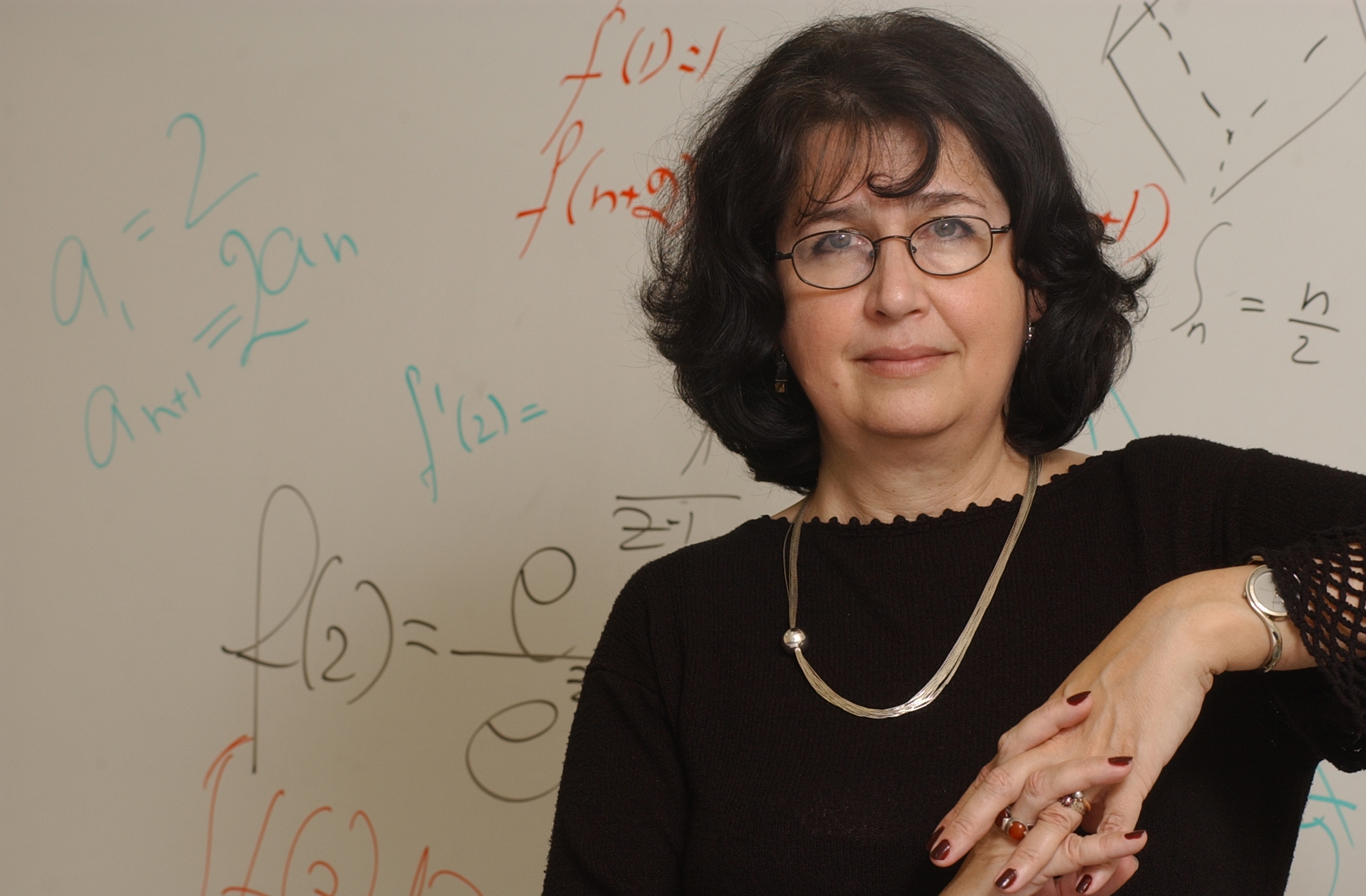
 |
THE ICMI HANS FREUDENTHAL MEDAL |

Anna Sfard |
It is with great pleasure that the ICMI Awards Committee hereby announces that the Hans Freudenthal Medal for 2007 is given to Professor Anna Sfard, University of Haifa, Israel, and the University of London, UK, in recognition of her highly significant and scientifically deep accomplishments within a consistent, long-term research programme focused on objectification and discourse in mathematics education, which has had a major impact on many strands of research in mathematics education and on numerous young researchers.
In addition to publications related to the above-mentioned research programme, Anna Sfard has published numerous other papers and book chapters within a broad range of topics. It is a characteristic feature of Anna Sfard's scientific achievements that they are always very thorough, original and intellectually sharp. She often uncovers the tacit if not hidden assumptions behind notions, approaches, and conventional wisdom, and by turning things upside-down she usually succeeds in generating new fundamental and striking insights into complex issues and problématiques.
Influenced greatly by her interest in communicational philosophy and psychology (e.g. Wittgenstein, Piaget and Vygotsky) as well as in history and languages, Anna Sfard's research programme took off in a series of papers published in the early 1990's that studied process-object duality and reification in mathematics - in particular in algebra - from both theoretical and empirical perspectives. These papers include "On the dual nature of mathematical conceptions: reflections on processes and objects as different sides of the same coin" (ESM, 22, 1991, 1-36), "The gains and pitfalls of reifications: The case of algebra" (with Liora Linchevski) (ESM, 1994, 26, 191-228), "Reification as a birth of a metaphor" (FLM, 1994, 14 (1), 44-55), and "The development of algebra: Confronting historical and psychological perspectives" (JMB, 1995, 14, 15-39) which have already become classics within their domain. Gradually, Anna Sfard's research programme developed into a somewhat broader one dealing with aspects of communication and discourse. First, she went on to study the nature and roles of metaphors in mathematics education, for instance in "On two metaphors for learning and the dangers of choosing just one" (ER, 1998, 27(2), 4-13), and in "Steering (dis)course between metaphor and rigor. Using focal analysis to investigate the emergence of mathematical objects" (JRME, 2000, 31(3), 296-327). From the early years of this century, she paid increasing attention to the relationship between mathematical learning (cognition) and discourse. This is reflected in a series of impressive high quality publications, among others "There is More to Discourse than Meets the Ears: Learning from mathematical communication things that we have not known before" (ESM, 2001, 46(1/3), 13-57), "Learning discourse: Socio-cultural approaches to research in mathematics education" (with Ellice Forman and Carolyn Kieran) (ESM 46(1/3), 1-12), "Why cannot children see as the same what grownups cannot see as different? - early numerical thinking revisited" (CI, 2005, 23(2), 237-309), and "What changes when learning goes to school: The communicational version, the case of mathematics" (EJSP, 2005, 3(1), 301-326). Today, Anna Sfard's research programme might be condensed by making use of the term she has coined to dissolve the classical dichotomy between communication and cognition, commognition. In 2008 Cambridge University Press published her monograph Thinking as communicating: Human development, the growth of discourses, and mathematizing, which provides an organised and systematic account of her research programme and its results.
Anna Sfard began her studies in physics at the University of Warsaw, Poland, in 1967, obtained a B.Sc. in Mathematics and Physics (1972) and a M.Sc. in mathematics (1977) both at the Hebrew University, Jerusalem, Israel, where she also got her PhD in mathematics education in 1989 (with a dissertation on the teaching of algorithms in high school), while having held various positions at her university since 1972. After having had post-doctoral positions and visiting scholar positions in the USA, UK, and Canada, she was appointed assistant professor (1995) at the University of Haifa, Israel, where she is now - since 2001 - professor in the Faculty of Education. From 2003 to 2007 Anna Sfard also held a chair (as the Lappan-Phillips-Fitzgerald Professor) at the Division of Science and Mathematics Education, Michigan State University, USA, with which she is still affiliated. In 2007 she was appointed to a chair of mathematics education, at the Institute of Education, University of London, UK, jointly with her position in Haifa.
She has been invited to give key-note addresses and plenary presentations in an impressive number of international conferences, including the ICMEs, in addition to having served as a member of several scientific committees, editorial boards, PhD committees, etc. on several continents. Anna Sfard has also supervised numerous master's and PhD students in Israel and abroad.
In summary, Anna Sfard is an eminently worthy recipient of the Hans Freudenthal Medal for 2007.